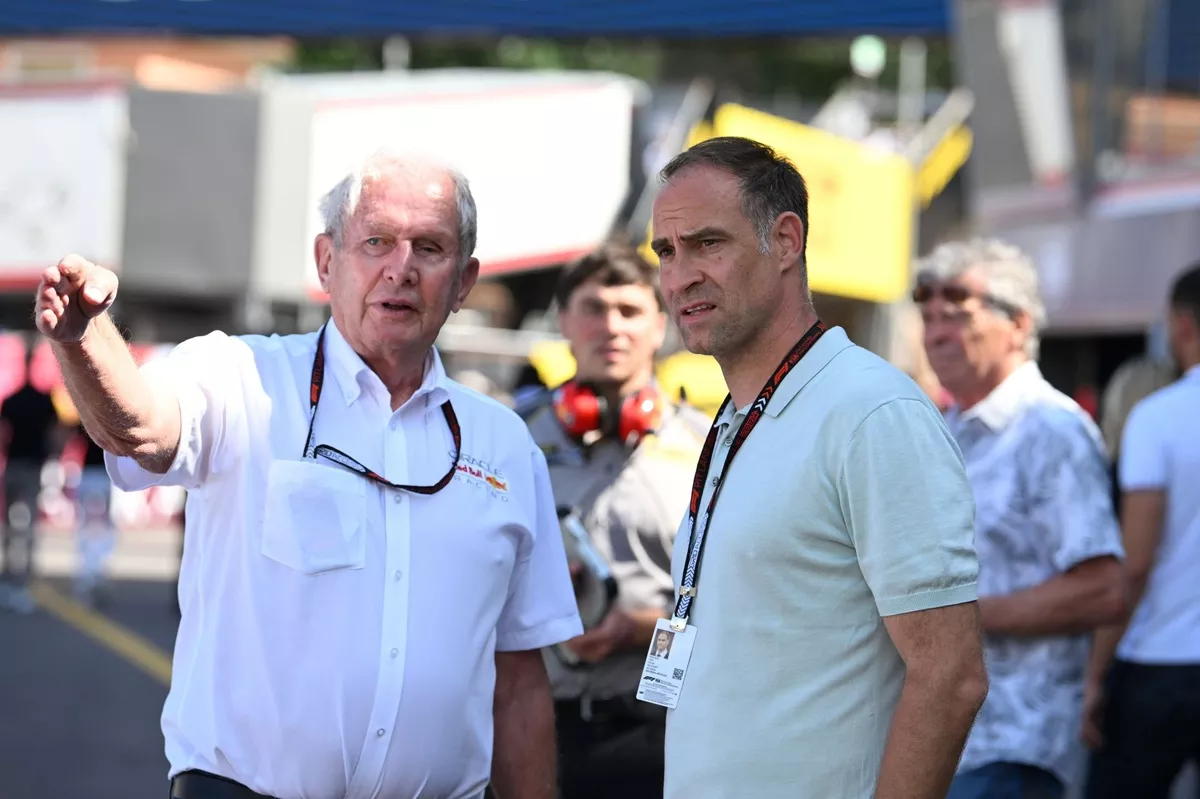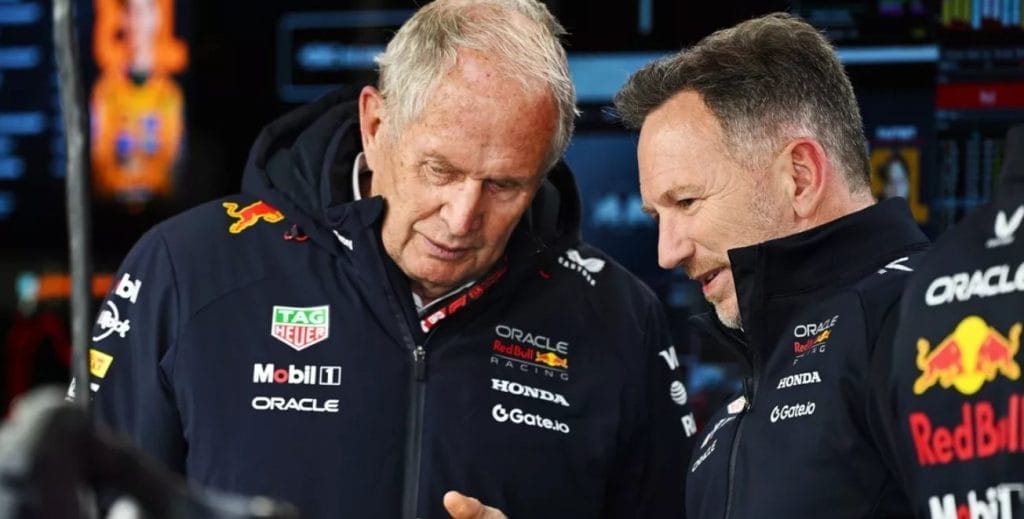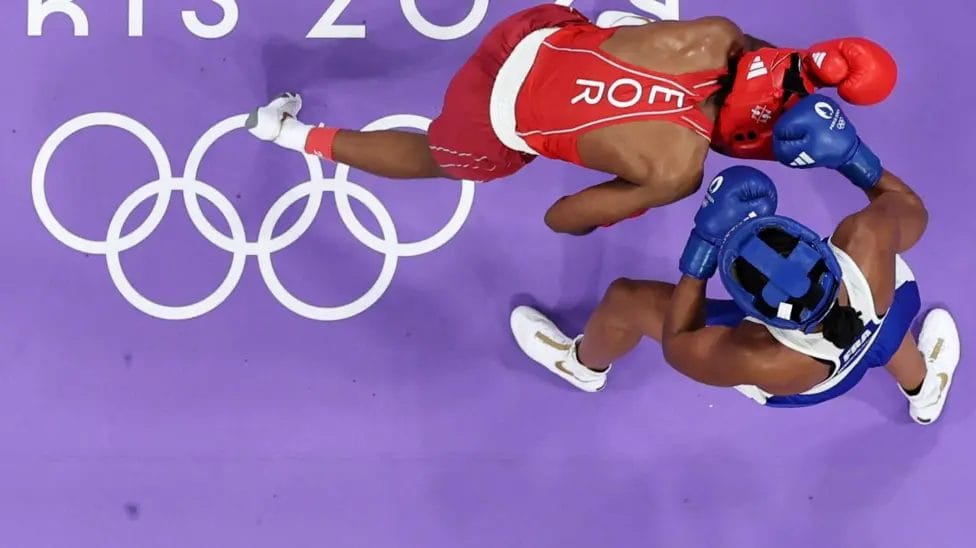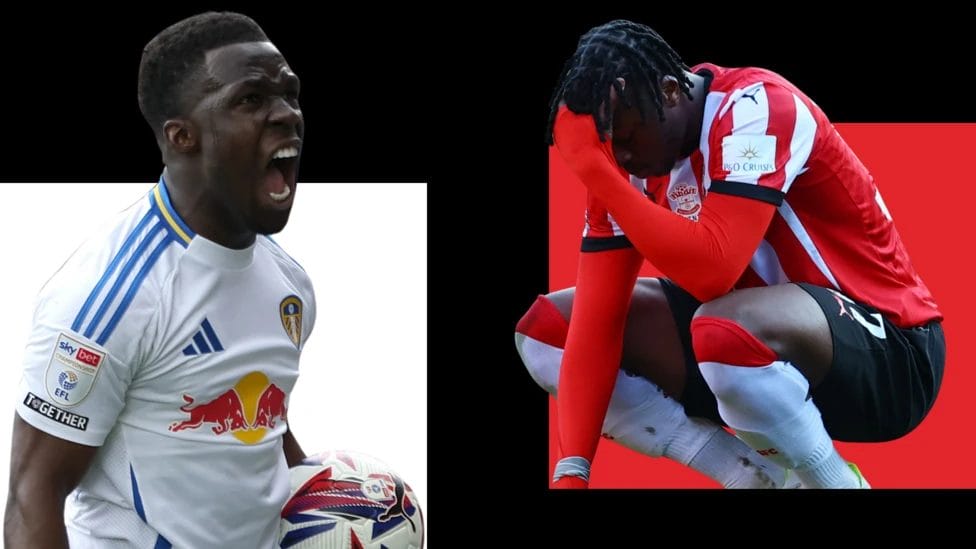
Despite Internal Tensions, Red Bull CEO Oliver Mintzlaff Backs Horner and Marko Amidst Speculation
Red Bull has had its fair share of drama over the past two seasons — internal shakeups, controversial decisions, and now a car that no longer seems invincible. But according to Red Bull CEO Oliver Mintzlaff, the situation is far from a crisis. In fact, if you ask him, it’s business as usual.
In a rare but pointed set of remarks, Mintzlaff addressed swirling rumours of a deepening rift at the top of the Red Bull Racing hierarchy, particularly between Team Principal Christian Horner and Advisor Helmut Marko. The two figureheads have been pivotal in shaping the team’s identity since its early years — but their dynamic has been tested like never before in recent times.
“Like with every one of our employees, I have the highest level of trust in our leadership team,” Mintzlaff told reporters this week. “Helmut and Christian are both committed to achieving maximum success, and they are absolutely focused on that. We’ve had recent conversations on this topic, and I remain confident.”
The Horner–Marko Dynamic: A Partnership Tested by Time

It’s no secret that Red Bull’s upper management has been under a microscope this season. With Max Verstappen’s recent dominance under threat and the RB21 showing signs of vulnerability, fans and pundits alike have begun pointing fingers. Some speculate that behind the scenes, tensions between Horner and Marko are compromising team unity.
But Mintzlaff — who oversees the entire Red Bull GmbH empire — was quick to remind everyone just how far this partnership has come.
“Let’s not forget that it was Helmut who played a key role in appointing Christian as Team Principal back in 2005,” he said. “They’ve worked side by side through 400 Grands Prix — a milestone they’ll reach at the upcoming Miami Grand Prix. That kind of longevity doesn’t happen by accident.”
Still, even Mintzlaff admits that not everything has been smooth sailing lately. “Every relationship has its ups and downs,” he said. “When you’re working under pressure, surrounded by passion and expectation, it’s only natural for tempers to flare now and then. But these are matters we resolve internally — behind closed doors.”
Red Bull’s Management Drama: More Than Just Gossip?
The whispers around the paddock haven’t come out of nowhere. Since the start of the 2024 season, Red Bull has seen notable internal changes, starting with the high-profile exits of several key technical staff and mounting criticism around the team’s recent strategic decisions.
And then, of course, there’s the elephant in the room: Horner’s increasingly visible disagreements with Marko. While both have remained professional in public, the friction between them has been hard to ignore.
Despite that, Mintzlaff remains resolute. He’s convinced that the pair still know how to work together when it counts. As proof, he cited a recent decision that caught many in the F1 world by surprise — the choice to send Liam Lawson back to Racing Bulls and promote Yuki Tsunoda to the senior Red Bull Racing seat.
“That decision was made jointly,” Mintzlaff insisted. “And I supported it fully.”
The Lawson-Tsunoda Call: A Risk or a Reset?
For some, the call to demote Lawson was a controversial one. The young Kiwi had impressed during his limited opportunities in F1, and many felt he deserved a longer run at the top. But Mintzlaff took a different view.
“I understand the criticism, but this is Formula 1 — the highest level of motorsport,” he said. “Liam’s performance just wasn’t quite where it needed to be. Keeping him in the car under those circumstances wouldn’t have been fair — it would have only increased the pressure on him.”
He added, “In the end, Liam understood the reasoning behind the decision. We’re glad to have him back at Racing Bulls, where he can continue to develop without that enormous weight on his shoulders.”
For Tsunoda, the promotion marks a major opportunity to prove that he’s not just a flashy driver but one capable of consistency and results at the sport’s top tier. If he thrives, it could help Red Bull silence some of the noise around its recent decisions — at least temporarily.
Trust at the Top: Why Mintzlaff Is Betting on Stability
Mintzlaff’s words weren’t just a defence of Horner and Marko — they were a broader message about Red Bull’s internal culture. For all the speculation and gossip that swirls around F1’s most successful recent team, the CEO is clearly betting on continuity, not change.
“When you’ve got two leaders who want to win as badly as these two do, you’re going to have moments of disagreement,” he said. “But we’re not here for harmony — we’re here for results. And our structure works. It has for nearly two decades.”
Indeed, the Horner–Marko relationship may be tested, but it’s far from broken. Mintzlaff believes their shared experience — and shared ambition — will continue to anchor the team moving forward.
Looking Ahead: Miami and Beyond
With Miami around the corner, all eyes will be on how Red Bull responds — both on and off the track. Verstappen’s early-season momentum has been checked, and rival teams are closing the performance gap. Internal harmony (or lack thereof) will play a key role in determining whether Red Bull can weather the storm and reassert its dominance.
Mintzlaff, for one, is keeping faith.
“We’ve been through tougher times before,” he said. “We know what it takes to win, and we know how to come together when it matters most. I believe in this team, and I believe in our leadership.”
Final Thoughts: A Storm in a Teacup, or the Start of Something Bigger?
For now, the message from Red Bull’s upper echelon is clear: there is no crisis. The people in charge are staying put, the system remains intact, and the mission is still the same — win races, win titles, and keep building on one of the most successful dynasties in modern Formula 1.
Whether that message holds up through the rest of the season will depend not just on words, but on results. But if Mintzlaff’s tone is anything to go by, Red Bull isn’t backing down any time soon.
So the next time someone asks if the team is in trouble, don’t be surprised if the answer is as simple — and as confident — as this:
“No. We’re fine.”







